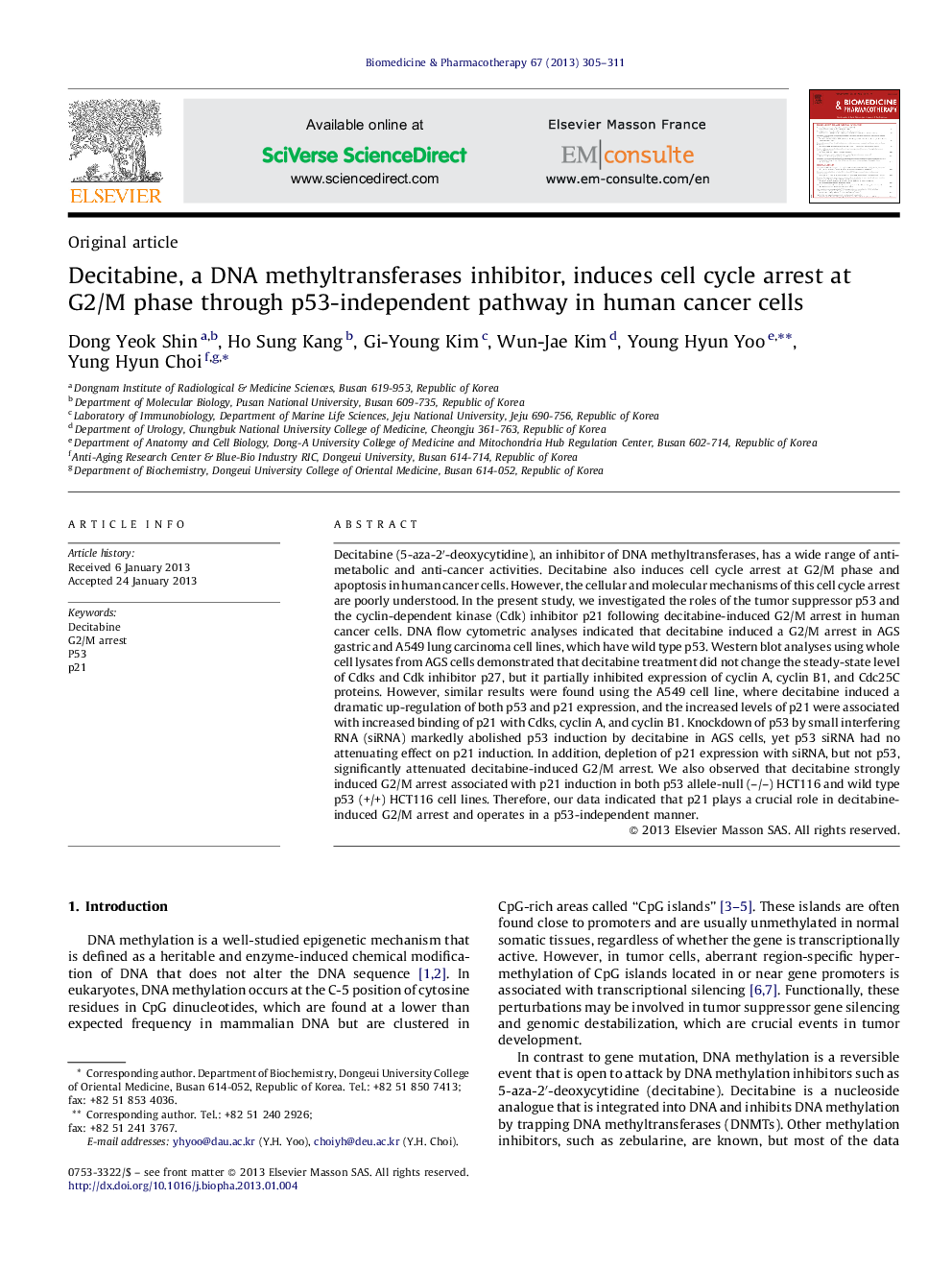| Article ID | Journal | Published Year | Pages | File Type |
|---|---|---|---|---|
| 2524293 | Biomedicine & Pharmacotherapy | 2013 | 7 Pages |
Decitabine (5-aza-2′-deoxycytidine), an inhibitor of DNA methyltransferases, has a wide range of anti-metabolic and anti-cancer activities. Decitabine also induces cell cycle arrest at G2/M phase and apoptosis in human cancer cells. However, the cellular and molecular mechanisms of this cell cycle arrest are poorly understood. In the present study, we investigated the roles of the tumor suppressor p53 and the cyclin-dependent kinase (Cdk) inhibitor p21 following decitabine-induced G2/M arrest in human cancer cells. DNA flow cytometric analyses indicated that decitabine induced a G2/M arrest in AGS gastric and A549 lung carcinoma cell lines, which have wild type p53. Western blot analyses using whole cell lysates from AGS cells demonstrated that decitabine treatment did not change the steady-state level of Cdks and Cdk inhibitor p27, but it partially inhibited expression of cyclin A, cyclin B1, and Cdc25C proteins. However, similar results were found using the A549 cell line, where decitabine induced a dramatic up-regulation of both p53 and p21 expression, and the increased levels of p21 were associated with increased binding of p21 with Cdks, cyclin A, and cyclin B1. Knockdown of p53 by small interfering RNA (siRNA) markedly abolished p53 induction by decitabine in AGS cells, yet p53 siRNA had no attenuating effect on p21 induction. In addition, depletion of p21 expression with siRNA, but not p53, significantly attenuated decitabine-induced G2/M arrest. We also observed that decitabine strongly induced G2/M arrest associated with p21 induction in both p53 allele-null (–/–) HCT116 and wild type p53 (+/+) HCT116 cell lines. Therefore, our data indicated that p21 plays a crucial role in decitabine-induced G2/M arrest and operates in a p53-independent manner.
